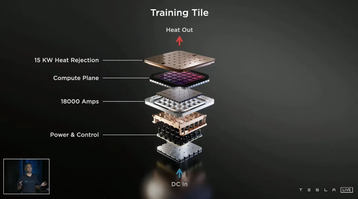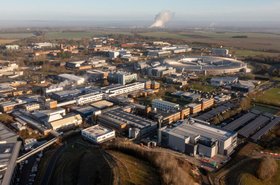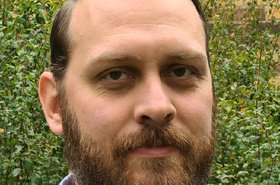Electric automotive company Tesla has sued a former engineer, claiming he stole confidential information on its in-house supercomputer, Project Dojo.
The system uses the D1 chip, which Tesla designed itself for machine learning workloads and to remove bandwidth bottlenecks.
Dojo is planned to be operational this year, with a claimed 1.1 exaflops of AI compute via 10 connected cabinets and 3,000 D1 chips.
Tesla claims that thermal engineer Alexander Yatskov quit the company in May, and gave a dummy laptop for inspection to cover up that he had illegally transferred confidential information on the system to his own computer.
Yatskov joined the company in January as a thermal engineer to help design cooling systems for the supercomputer. Tesla also claims that Yatskov lied in his resume about his experience and broke a non-disclosure agreement.
“This is a case about illicit retention of trade secrets by an employee who, in his short time at Tesla, already demonstrated a track record of lying and then lying again by providing a ‘dummy’ device to try and cover his tracks,” Tesla said in a complaint, filed with the US District Court, Northern District of California (San Jose).
Yatskov told Bloomberg that he was not aware of the complaint and declined to comment. According to his LinkedIn, Yatskov spent nine years as a thermal design engineer at Cray, eight years as the VP of engineering at Thermal Form & Function, and six years as a principal thermal-mechanical engineer at Juniper Networks.
Tesla is suing Yatskov for compensatory and exemplary damages, and is seeking a court order to force Yatskov to return the classified information.
The company has a history of suing former employees for alleged trade secret theft. In January, it filed a suit against Alex Khatilov, claiming he stole corporate data. It is also suing employees that left to join rivals like Rivian and Zoox - as well as suing Rivian itself, claiming it is poaching staff and using them to steal trade secrets.
A two-year case against Cao Guangzhi for copying self-driving car data ended last year when Cao admitted to accidentally shifting source code to his personal cloud-based account. He made a token payment and an apology.
In 2018, a technician at Tesla’s Gigafactory in Nevada leaked information to a reporter. CEO Elon Musk accused Martin Tripp of engaging in a “quite extensive and damaging sabotage” against the company’s computer systems.
Musk ordered investigators to hack Tripp’s phone and falsely told media that Tesla had “received a call at the Gigafactory that he was going to come back and shoot people.”
Tripp - who claimed he was a whistleblower detailing massive waste during the production of the Model 3 and who showed evidence that Tesla was shipping cars with unsafe batteries - countersued Tesla. In late 2020, he was ordered to pay $400,000 to settle the case.




